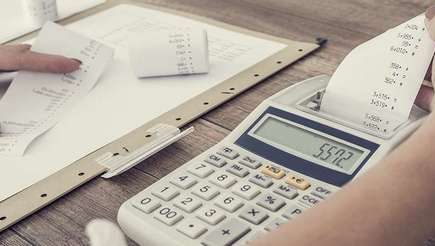The new tax year begins on 6 April, which means now is a good time to reassess your accounting habits and improve your record keeping.
If you find yourself getting frustrated filling in your tax return each year, it's worth taking a few steps at the start of a new tax year to avoid self-assessment stress next January.
Set up a business bank account
If you don't already have a separate bank account for your business, you should consider setting one up. It can really make life easier, and it doesn't take long to do. Ask your clients and customers to pay into your business account, and pay all of your allowable expenses (including your own salary if applicable) from it.
With a dedicated account, you can see all of your incomings and outgoings at a glance. If your hard drive crashes or you lose your ledger, you'll still be able to find your figures for the year. And it definitely beats sifting through the small purchases in your personal current account.
Start using accounting software
Speaking of record keeping, it might be time to update your methods. Accounting software such as FreeAgent and QuickBooks can help you to keep track of your finances. FreeAgent has a function that automatically sends (and chases) invoices, and you can create a paper-free record of your receipts by photographing and storing them. It also connects to your bank account, showing you an overview of incomings and outgoings, and is integrated with HMRC so you can send your tax return with one click. QuickBooks has similar features, but also tracks mileage and estimates your annual tax bill on the go.
Keep everything (just in case)
Keep all of your receipts in a folder, along with an up-to-date list of your expenses, which includes the time, date, price and product so that you can see them at a glance. This means that if you do get audited it will save you a lot of time and stress.
Hire an accountant
The services of an accountant are accepted as an allowable expense by HMRC, meaning that their bill is tax deductible. Meeting with an accountant can save you money, too. They can offer you advice if they think you could reduce your tax liability, so can help you maximise your profits. They can also do the work of filling in your tax return, and will pick up any problems with your accounts that might have slipped through the net.
File early
The deadline for filing an online tax return each year is 31 January, and 31 October for paper tax returns. However, you don't have to wait until then to send in your tax return. You should already have your records of payments and expenses on hand, so why not file it in May?
You still have until the 31 January to pay, but you will know what you owe in advance, and you can sit back and relax while your self-employed colleagues scrabble to finish their returns in January.






